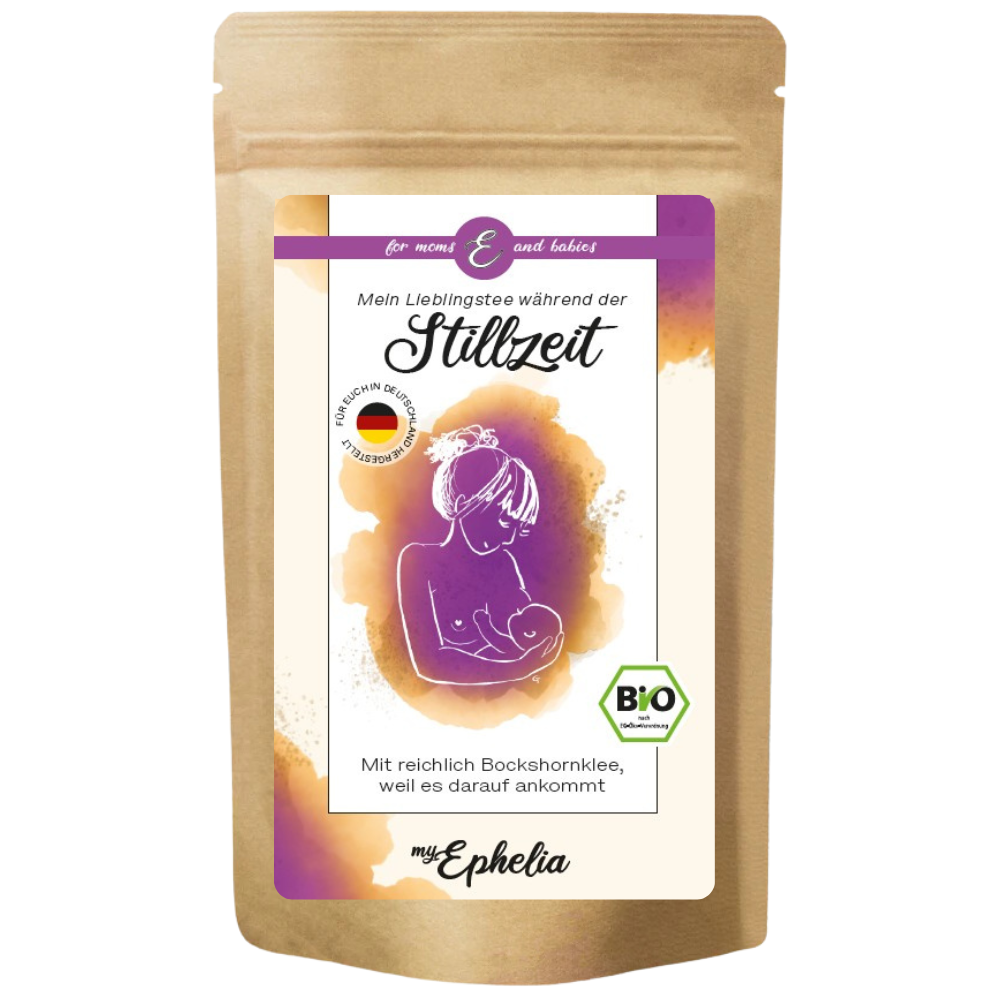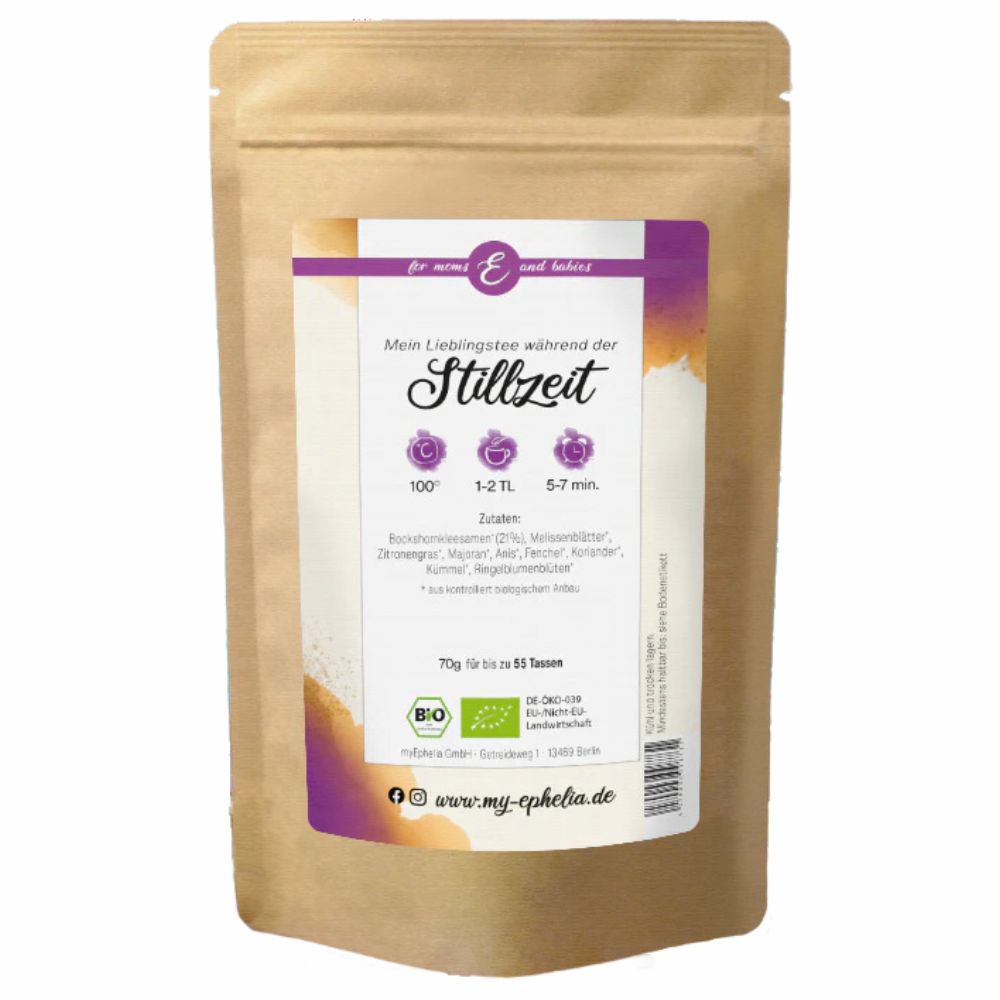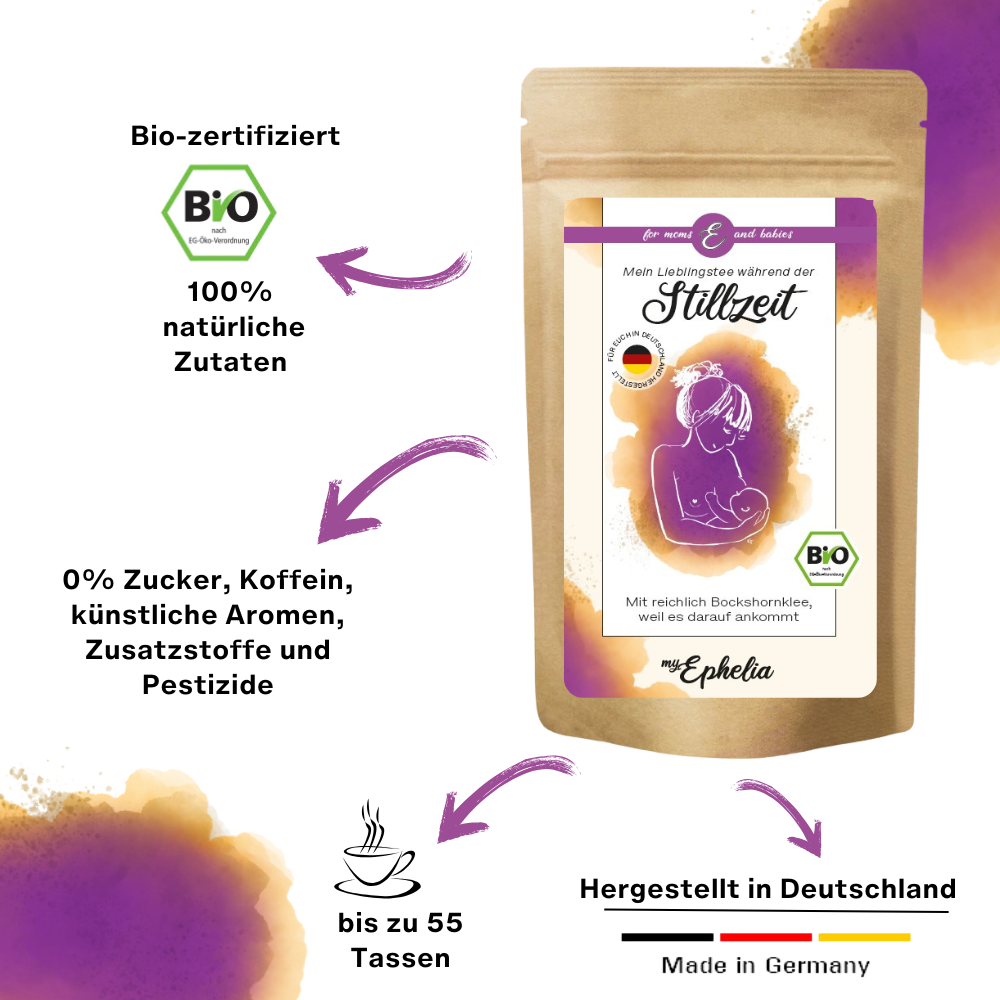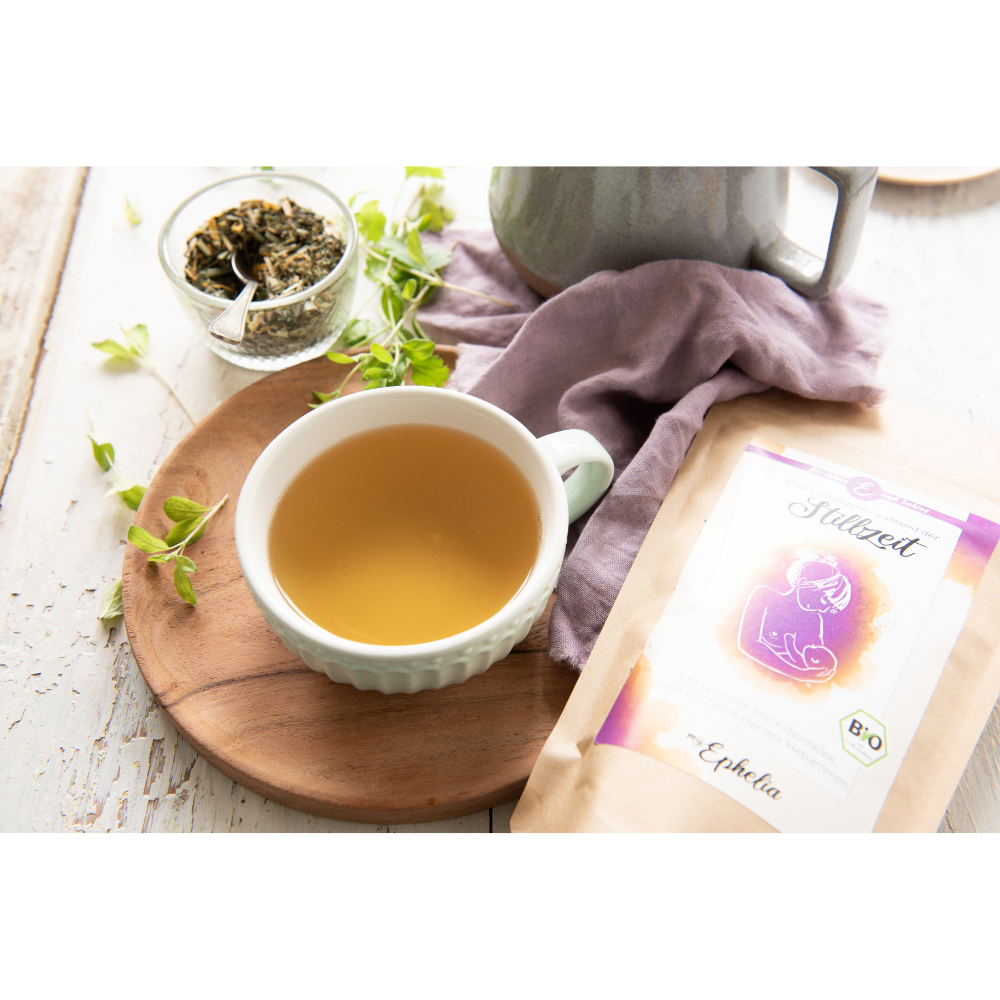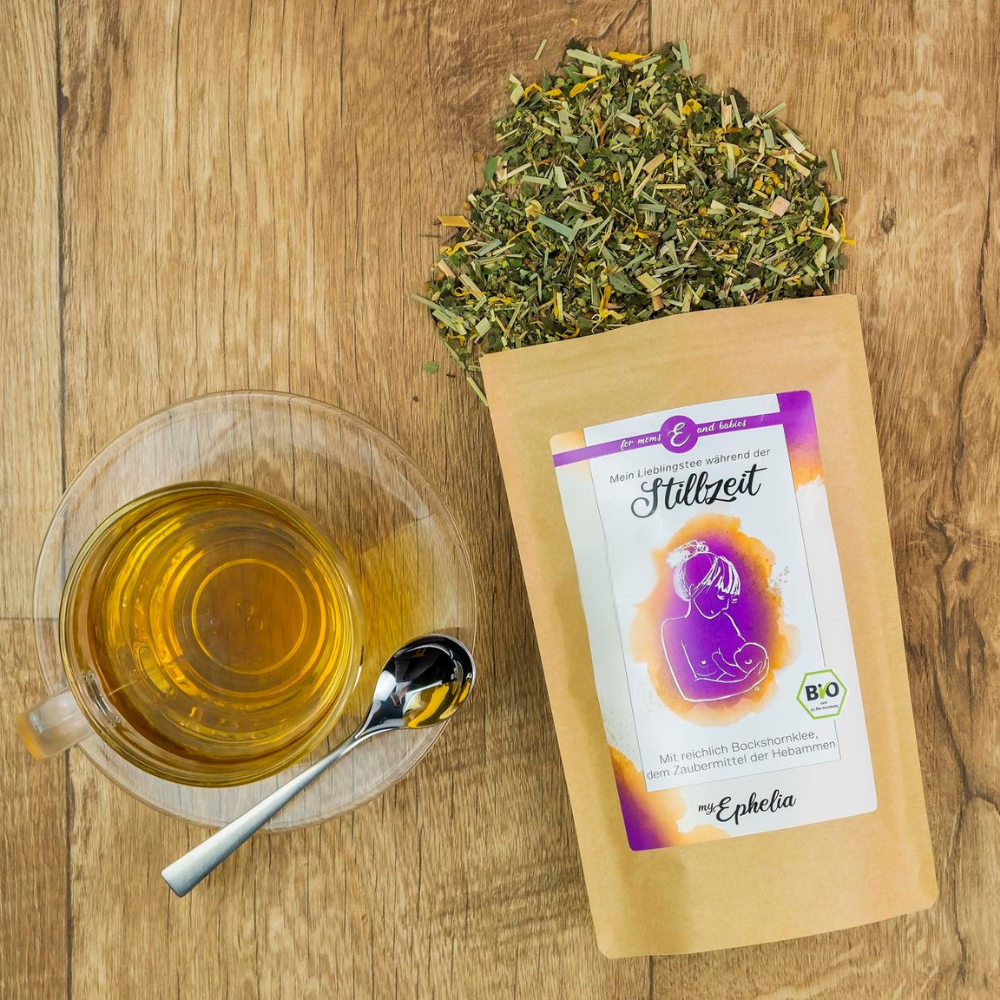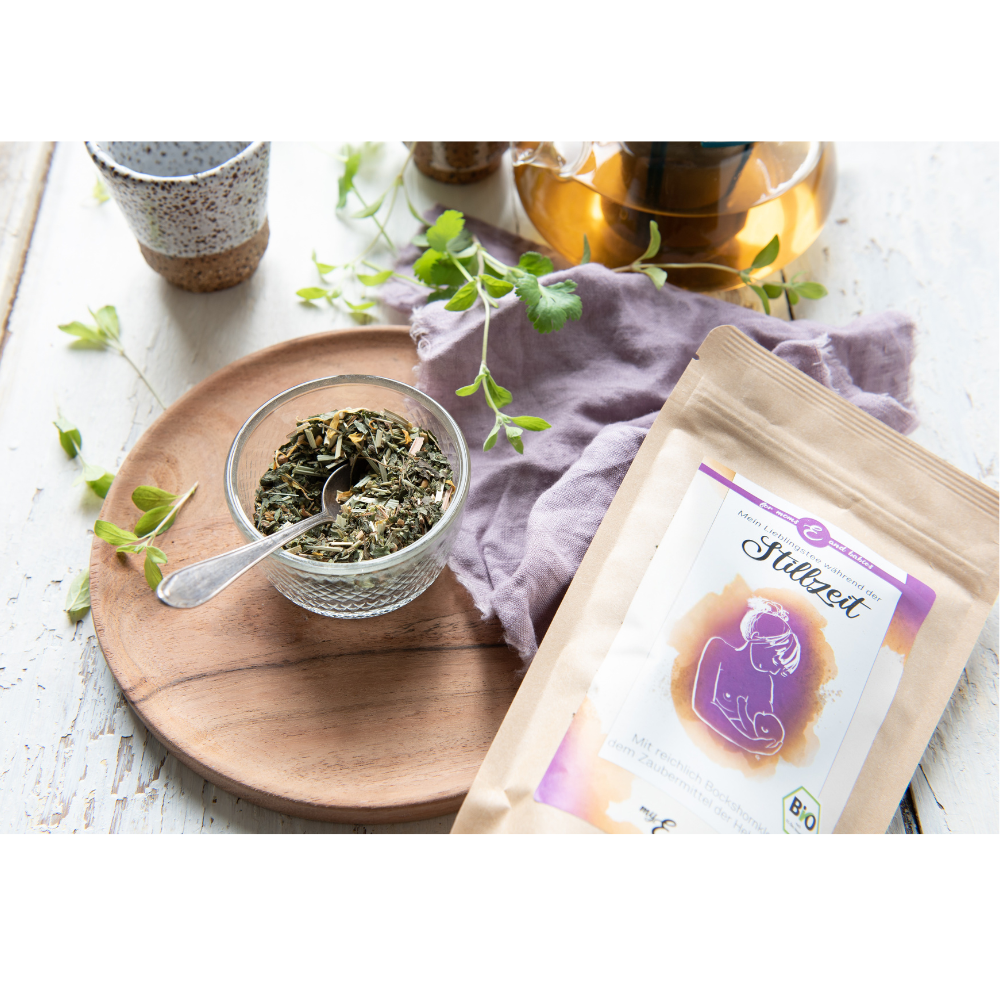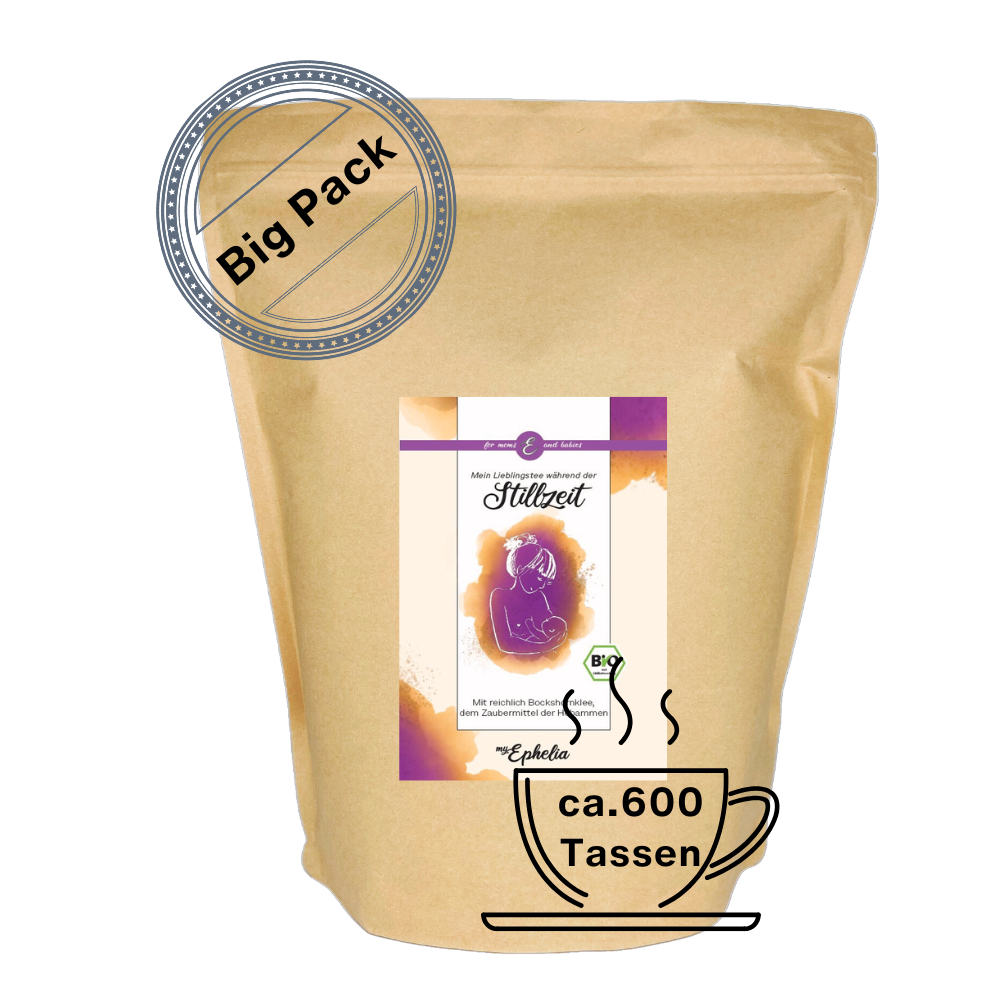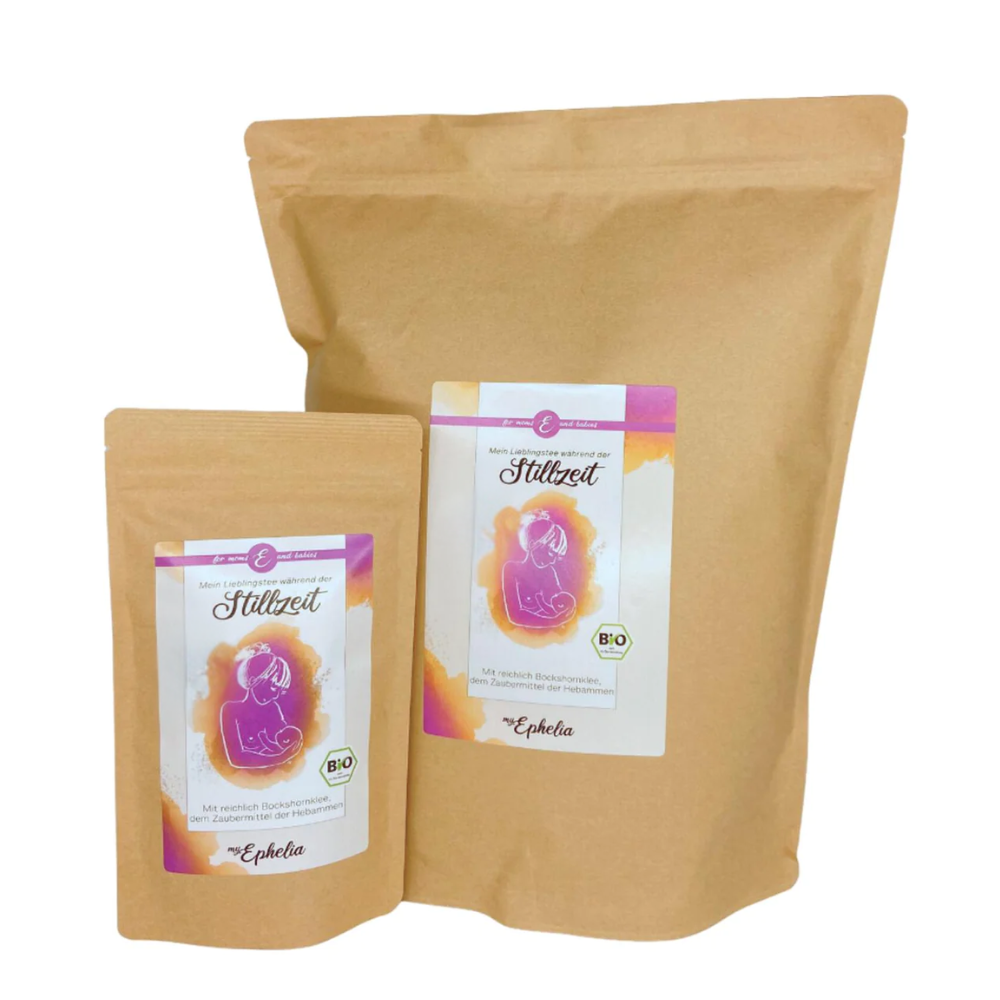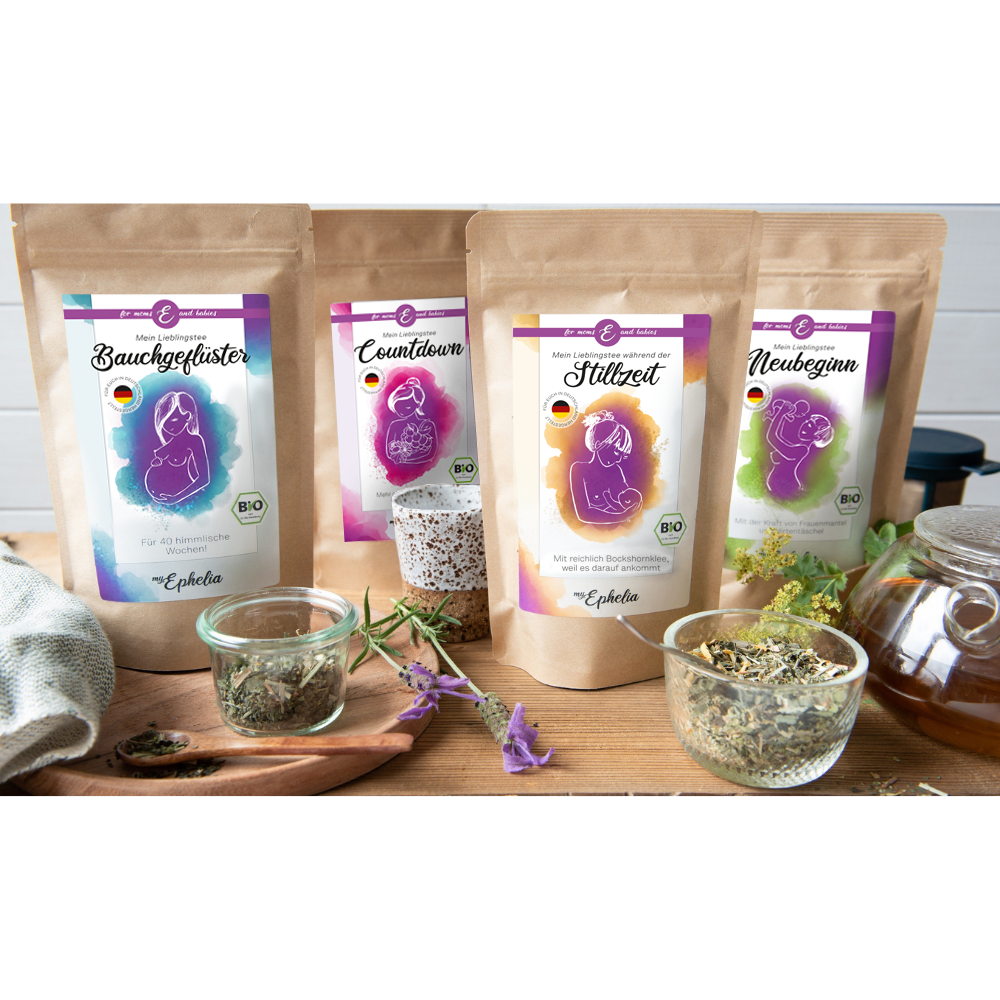myEphelia
My favorite tea while breastfeeding
My favorite tea while breastfeeding
Mit Liebe entwickelt – Unsere Teemischungen basieren auf sorgfältig ausgewählten Zutaten und wurden mit viel Erfahrung und Feingefühl für die besonderen Lebensphasen rund um Schwangerschaft, Geburt und Stillzeit komponiert. Geschmacklich fein abgestimmt, begleiten sie dich wohltuend durch diese besondere Zeit.
100 % Bio & frei von Zusätzen – Zertifizierte Bio-Kräuter, vegan, ohne Pestizide, Gluten, Koffein, Zucker, Aromen oder sonstige Zusatzstoffe – transparent deklariert, nichts als Natur.
Ergiebig & nachhaltig verpackt – In Deutschland gemischt, alufreie kompostierbare Beutel, großes Kräutervolumen für viele Tassen – spart Müll und Geld.
Couldn't load pickup availability
Zutaten
Zutaten
Fenugreek seeds*, lemon balm leaves*, lemongrass*, marjoram*, anise*, fennel*, coriander*, caraway*, marigold flowers*
*from controlled organic cultivation
Zubereitung
Zubereitung
For the ideal development of our teas, we recommend that you take 1-2 teaspoons per cup (200ml) and let the tea steep at 100*C for 5-7 minutes.
Then drink in peace and relax!
Recommended consumption:
- 3-4 cups per day from delivery
- If there is enough milk, 1-2 cups per day in combination with the recovery tea
- developed by our midwife
- with extra fenugreek
- recommended by breastfeeding mothers
Share
